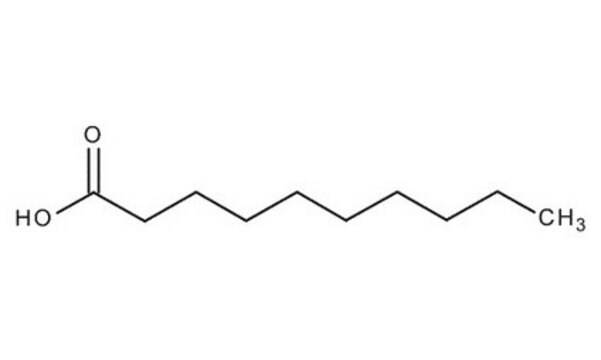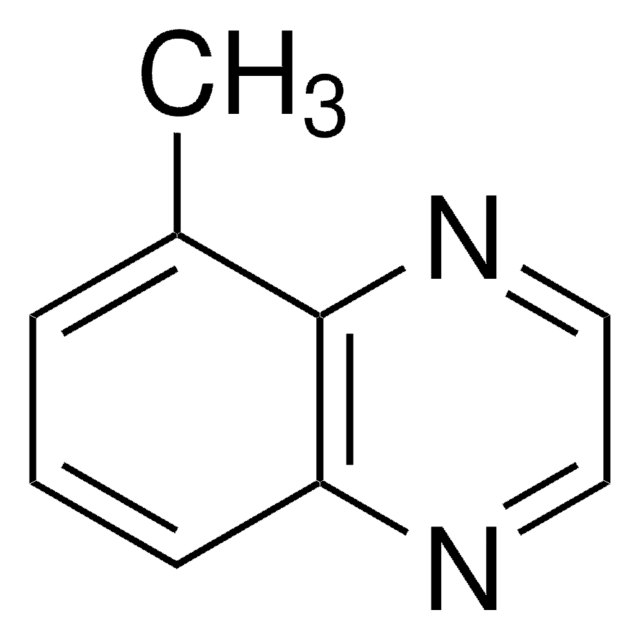W236403
Decanoic acid
≥99.5%, FCC, FG
Synonym(s):
1-Nonanecarboxylic acid, Acid C10, C10:0, Capric acid, NSC 5025
About This Item
Recommended Products
biological source
palm oil
Quality Level
grade
FG
Fragrance grade
Halal
Kosher
Agency
follows IFRA guidelines
meets purity specifications of JECFA
reg. compliance
EU Regulation 1223/2009
EU Regulation 1334/2008 & 178/2002
FCC
FDA 21 CFR 117
FDA 21 CFR 172.210
vapor pressure
15 mmHg ( 160 °C)
Assay
≥99.5%
bp
268-270 °C (lit.)
mp
27-32 °C (lit.)
density
0.893 g/mL at 25 °C (lit.)
application(s)
flavors and fragrances
Documentation
see Safety & Documentation for available documents
food allergen
no known allergens
fragrance allergen
no known allergens
Organoleptic
fatty; citrus; rancid; sour
SMILES string
CCCCCCCCCC(O)=O
InChI
1S/C10H20O2/c1-2-3-4-5-6-7-8-9-10(11)12/h2-9H2,1H3,(H,11,12)
InChI key
GHVNFZFCNZKVNT-UHFFFAOYSA-N
Looking for similar products? Visit Product Comparison Guide
Related Categories
General description
Application
- Chemical Characterization of Terpene-Based Hydrophobic Eutectic Solvents and Their Application for Pb(II) Complexation during Solvent Extraction Procedure.: This paper discusses the use of Decanoic acid in novel eutectic solvents for heavy metal extraction, presenting a green chemistry approach to environmental cleanup and recovery of valuable metals (Suljkanović et al., 2024).
Signal Word
Warning
Hazard Statements
Precautionary Statements
Hazard Classifications
Aquatic Chronic 3 - Eye Irrit. 2 - Skin Irrit. 2
Storage Class Code
11 - Combustible Solids
WGK
WGK 1
Flash Point(F)
296.6 °F - closed cup
Flash Point(C)
147 °C - closed cup
Personal Protective Equipment
Choose from one of the most recent versions:
Already Own This Product?
Find documentation for the products that you have recently purchased in the Document Library.
Customers Also Viewed
Protocols
In this study, SPME was used for the analysis of free fatty acids in Parmesan cheese using a 65 μm Carbowax/divinylbenzene (DVB) SPME fiber. Headspace extraction of the cheese sample was conducted at 65 °C for 15 minutes and analyzed by GC with FID detection. SPME is ideal for analyzing the volatiles associated with solid food samples. The phase chemistry of the Nukol GC column provides excellent peak shape of acidic compounds.
Our team of scientists has experience in all areas of research including Life Science, Material Science, Chemical Synthesis, Chromatography, Analytical and many others.
Contact Technical Service







